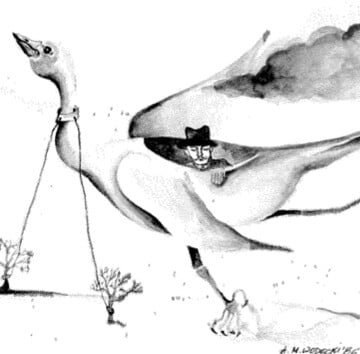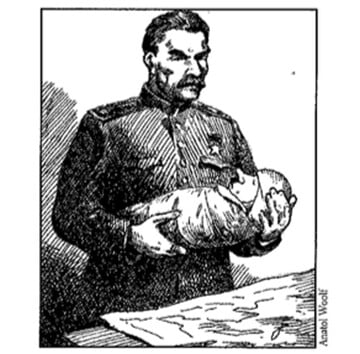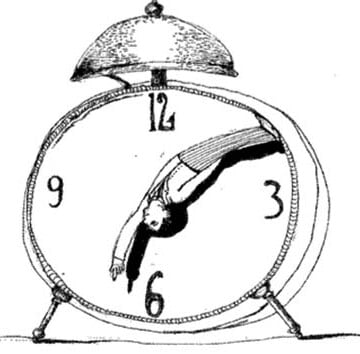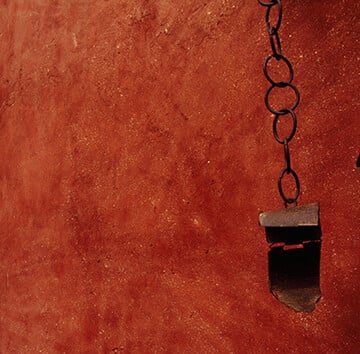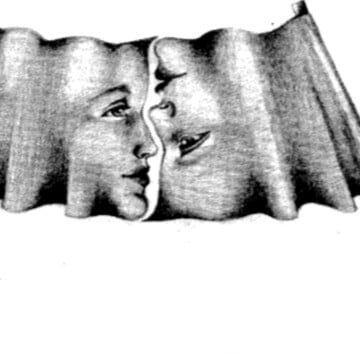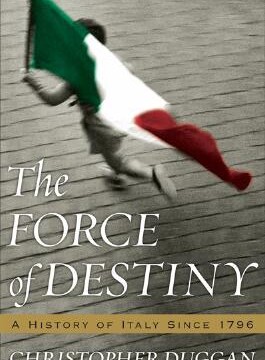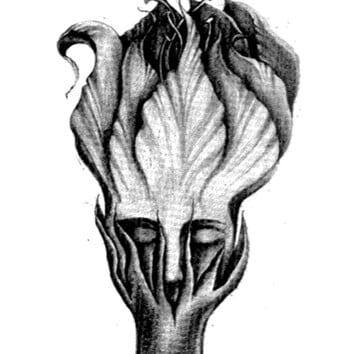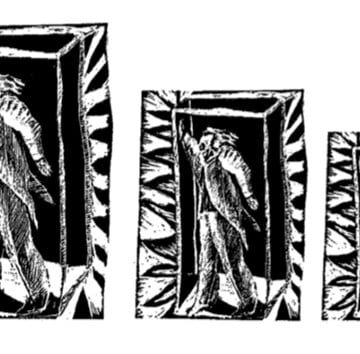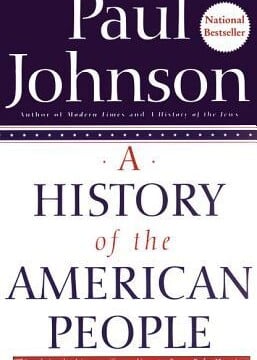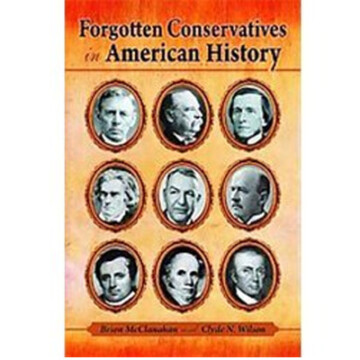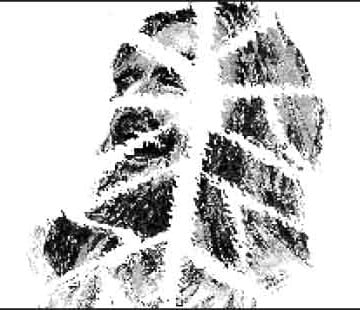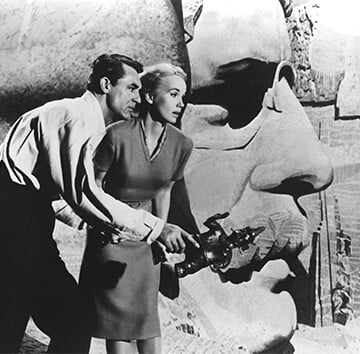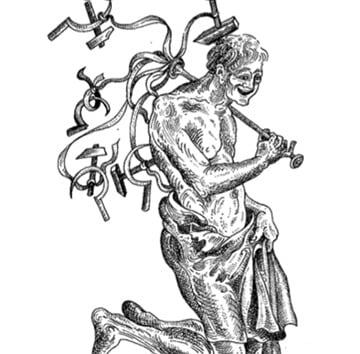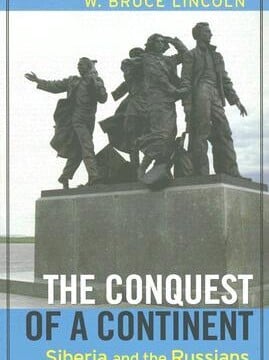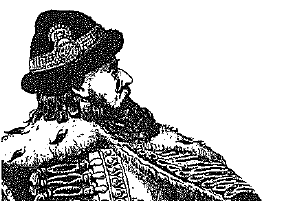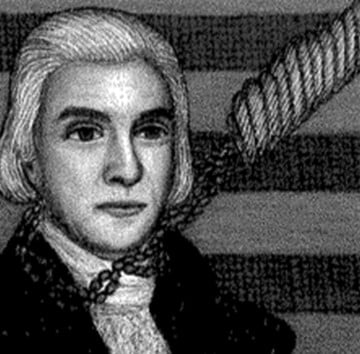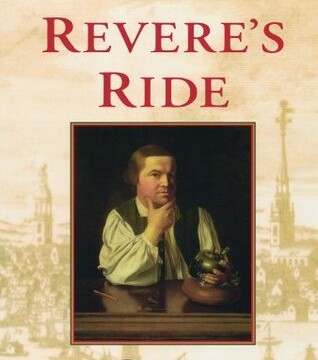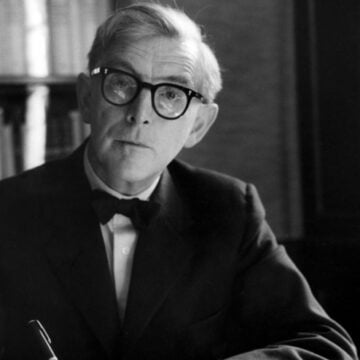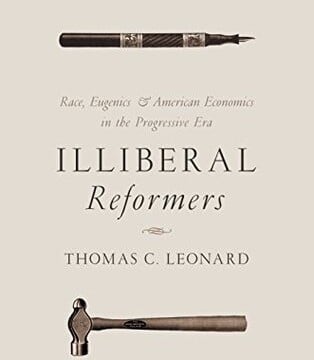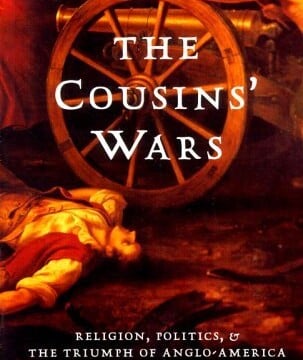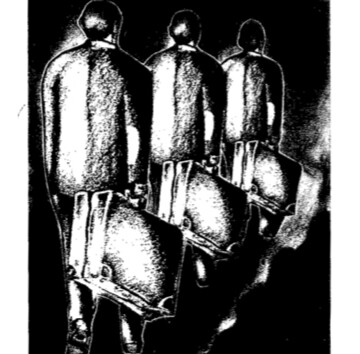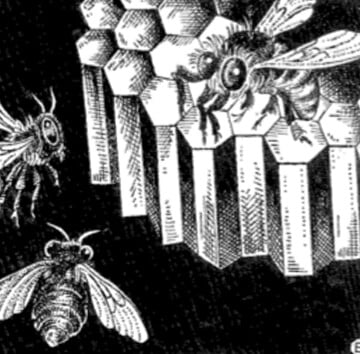“Imaging . . . is properly the work of a poet; the [rest] he borrows horn the historian.” —John Dryden Here is an unAmerican story. A young man writes a successful novel. Thousands of Americans, in the oddest places, esteem it highly. So do the most reputable publishers in New York. When he attempts the...
633 search results for: Forgotten+History
History as Paranoia
There are many conservative, intelligent people who will happily tell you that there is no such thing as the absolute truth of history, only different, mutually complementary versions. History, they will say, is a mutable, fluid continuum, whose multiple truths are constantly undergoing revision and revaluation in one another’s reflected light, as well as in...
Whig History and Lost Causes
It is totally misleading to present history as if its course was inevitable. The past cannot be understood if the elements of chance and contingency are ignored. To assume that what happened was bound to happen—the teleological interpretation of history—takes away the options facing individuals, groups, and governments in the past. It is analytically suspect,...
Deconstructing the 1619 Project
Several years ago, I purchased a used copy of Robert Fogel and Stanley Engerman’s Time on the Cross: The Economics of American Negro Slavery (1974), one of the five most important books on American slavery that have appeared in the last 50 years. The previous owner had inserted a series of newspaper clippings of book...
Showdown at Gettysburg
Sitting through a showing of the recent film Gettysburg in a multiplex theater amid the abstract sprawl of suburban Yankeedom was somehow an unnerving experience. I don’t mean to say that the movie itself was off-putting or unsuccessful, though come to think of it, there were a few awkward moments here and there. No, the...
Exterminating Fantasies
“[Socialism is] the combination of religious sentimentality, industrial insanity, and moral obliquity.” —F.J.C. Heamshaw Some years ago, George Watson wrote two remarkable articles for Chronicles describing how the Soviets, those heroes of socialist resistance to fascism, carried on using German concentration camps for their original purposes until the early 50’s (“Buchenwald’s...
Il Whig in Italia
Some years ago I was interviewed by a reporter for Corriere della Sera, Italy’s most prestigious newspaper. He had heard that I was a follower of Umberto Bossi, leader of the secessionist Lega Nord, and he wanted to know what plans I had for breaking up the United States. After disclaiming any secessionist political agenda,...
Donald Davidson and the Calculus of Memory
The opening scene of the folk opera Singin’ Billy, for which Donald Davidson wrote the book and lyrics, takes place in the yard of Callie Wilkins, “Miss Callie,” the matriarch of Oconee Town in Pickens County, South Carolina. Two young people have married, John and Jennie Alsop, and are in danger of a shivaree. They...
Ancestors
With the deaths of Robert Penn Warren and Walker Percy the specter of the star system is loose again in the land. “Who will be their successors? Who will pick up their mantle?” It’s a plaintive cry, predictable but genuine, largely journalistic and academic—a spume from the wave of canon-making—thinned by its basis in literary...
An American Bhagavadgita
“The United States of America—the greatest potential force, material, moral, and spiritual, in the world.” —G. Lowes Dickinson For Paul Johnson, American history was a non-subject in his days at Oxford and its School of Modern History in the 1940’s. “Nothing was said of America, except insofar as it lay on...
A Republic Not Kept
This book might have been called “Forgotten Figures in Real American History”—a social and intellectual reality, tradition, and political-economic program whose life ended, effectively, in 1861, though many dedicated public and literary men (including most of the contributors to this journal) have devoted—or rather sacrificed—themselves to resuscitating it, or at least to keeping its memory...
A Quarter Century After ‘The Abolition of Britain’
The problems that Peter Hitchens discussed 25 years ago in 'The Abolition of Britain' have only worsened. The book brilliantly sets the stage for Britain's current malaise.
Man and Everyman
The Abolition of Man, C.S. Lewis’s masterful critique of the relativism that was as rampant in his day as it is in ours, represented the culmination of the author’s quest for the quintessential meaning of man’s being and purpose. Always a diligent searcher after truth, Lewis had climbed a long and arduous path from the...
Monumental Stupidity
There is a scene in Alfred Hitchcock’s 1959 classic North by Northwest in which the characters look out at a brooding Mount Rushmore from the dining-room terrace of the Sheraton-Johnson Hotel in Rapid City, South Dakota (since renamed the Hotel Alex Johnson). There are Lincoln, Jefferson, Washington, and Theodore Roosevelt peering back, and shortly after...
Literature and the Curriculum
The controversy over the humanities curricula is a struggle over definition, and what is at issue is not so much the nature or purposes of the American university as the identity of the American people. There have been many such definitional combats in the past; the greatest of them led to the War Between the States....
The Prairie Populist Historian
William Appleman Williams (1921-1990) was dean of the New Left School of American diplomatic history. As one of the most influential American historians in the ’60s and ’70s, he gained a national audience for his anti-war, anti-globalist, and anti-imperial views. Odd as it might seem, it would be more likely these days that Patrick Buchanan...
Peace With Zulus
Like most literate Brits of my generation, I grew up immersed in the book 1066 and All That, the brilliant parody of historical writing published in 1930 by W.C. Sellar and R.J. Yeatman. Among the large chunks of the book I can still recite verbatim is the catalogue of Victorian colonial wars, which mimics with...
On the Ruling Class and On Polonophobia
Right on, Sam Francis (“The Ruling Class,” January 1997)! And if you want to get an idea of who the oligarchs are, look at the list of those who put up the two billion dollars for the recent election. Barbra Streisand, the Raidys, etc. As to when the great American experiment of self-government started falling...
New England Against America
“The fiction of Mr. Simms gave indication, we repeat, of genius, and that of no common order. Had he been even a Yankee, this genius would have been rendered immediately manifest to his countrymen, but unhappily (perhaps) he was a Southerner. . . . His book, therefore, depended entirely upon its own intrinsic value and...
Forty Years in the American Wilderness
It is probably fair to say that John Lukacs, the Hungarian-American historian and historical philosopher, author of 13 books, remains after more than forty years an enigma to American historians in particular and to American political intellectuals in general. The historical profession, which persists in refusing to accept him fully into the sodality, has been...
New England Against America
“The fiction of Mr. Simms gave indication, we repeat, of genius, and that of no common order. Had he been even a Yankee, this genius would have been rendered immediately manifest to his countrymen, but unhappily (perhaps) he was a Southerner…. His book, therefore, depended entirely upon its own intrinsic value and...
In Praise of Cultural Appropriation
Recently I read of a 67-year-old woman who wanted to run in a marathon. She had never run for exercise in her life, but her desire and passion led her to put on a pair of sneakers, leave the house, and walk a mile. Every day she walked through her neighborhood, extending the distance a...
A Soviet Psychosis
As Mikhail Gorbachev moves forward in his role as the new Vozhd of the USSR, he must take pride in a unique achievement. In a few years, he has managed to internationalize a Russian word—glasnost—and by its repeated use at home and abroad has dazzled the world with miracles that have yet to materialize. Whatever...
The Russian Frontier
America, the historian Frederick Jackson Turner had it, is a land defined by its frontiers, once inexorably westward- lending, led by Manifest Destiny. The cultural geographer Carl Ortwin Sauer gave Turner’s “frontier thesis” a twist that denizens of the New West will appreciate: “The westward movement in American history,” he wrote, “gave rise to the...
Maturing (& Remembering) in Print
Sam Holman by James T. Farrell Prometheus Books; Buffalo, NY. Achieving self-definition through self-division is a truly impossible mission, but the cordless ego of contemporary liberalism continues to try to repopulate the world with its own image. That the result would be a universe of images reflecting a totalitarian state does not disturb the liberal...
A Doctor in Spite of Himself
On December 3, 1989, the London Telegraph included a piece of academic news from the United States: “Researchers in his native Georgia must soon decide whether to reveal that the late Dr. Martin Luther King, murdered in 1968, was—in addition to his other human failings—a plagiarist. There is now much doubt as to whether his...
Southern Supplements
“We have sung of the soldiers and sailors, but who shall hymn the politicians?” —Herman Melville The great classicist and poet A.E. Housman once wrote that the work of a scholar in the humanities is not like that of a scientist examining specimens under a microscope—it is more like the work of a dog searching...
The Preservation of the World
“Accuse not nature, she hath done her part; Do thou but thine!” —John Milton Slow learners that we humans are, only recently have great numbers of us become aware of the tremendous, seemingly insurmountable ecological crises facing us. Some environmentalists date the earliest stirrings of this now-widespread awareness of the natural world and of our...
Tom and Sally and Joe and Fawn
The timing of Nature magazine’s “expose” of Thomas Jefferson’s alleged affair with his slave Sally Hemings received a great deal of press attention, coming as it did just before elections which were expected to determine a modern philandering president’s fate. At the same time, Joe Ellis, the author of the article, signed a full-page newspaper...
The Untimely Death of Vice President Hobart
Little does history remember the death of Vice President Garret Augustus Hobart at the tender age of 55, barely a month before the beginning of the present century. Yet we have cause to lament that, in the words of the Psalmist, this humble personage was not granted a span of 70, or even 80, years....
Deo Vindice
No sooner did Virginia Gov. Bob McDonnell issue his proclamation declaring April Confederate History Month than the ideological canister fire began. The proclamation is “incendiary,” huffed the Washington Post. “Obnoxious,” sniffed historian James McPherson. “Mind-boggling,” griped former governor Douglas Wilder, the grandson of slaves and the first black governor in America. And it was all...
Letter From Texas: Gott Mit Uns
As modern imperialism grows, even the regions within those countries under its rule become homogenized. Within the subnational regions, smaller ethnic enclaves, with their diverse cultures, tend to take one of two paths. They become tourist traps where the natives are totally ignorant of their own histories, differences, and contributions to the larger groups, until,...
Listen My Children
Sometimes you wonder. Having been told by a Democrat that if we had “screwed up” at Saratoga we would today have national health insurance, I suppressed a number of reactions that came to mind by deciding to start smoking again. One was to suggest that if anyone needed health insurance, it could easily be obtained....
Letter From Texas: Gott Mit Uns
As modern imperialism grows, even the regions within those countries under its rule become homogenized. Within the subnational regions, smaller ethnic enclaves, with their diverse cultures, tend to take one of two paths. They become tourist traps where the natives are ...
Russia’s Way Back
Liberalism’s Glorious Age of parliamentary democracy, nation building and national consolidation, free trade, and empire, of which Great Britain was the chief power and paramount symbol, reached a catastrophic close in 1914. After 1945, liberalism in renovated form attempted to launch a modern Glorious Age dominated by the Pax Americana and the United Nations and...
Secessionist Fantasies
Throughout the first half of the present year, “secession” became the new watchword for a growing number of people on the American right. Economist Walter Williams has written at least two newspaper columns openly advocating secession. Jeffrey Tucker of the Ludwig von Mises Institute describes secession as “the cutting-edge issue that defines today’s anti-statism,” and...
Geoffrey Blainey and the Multicultural Nirvana
One’s kindest possible response to the Australian Broadcasting Corporation’s typical attempt at a sitcom is Mark Twain’s quip about The Vicar of Wakefield: “Nothing could be funnier than its pathos, and nothing could be sadder than its humour.” Hence the astonished pleasure inspired by the Corporation’s dazzling new comedy Frontline. A merciless skewering of current-affairs...
Maryland, the South’s Forgotten Cousin
As recently as the 1930’s, elderly black people in rural Maryland were still keeping headstrong children in line with the admonition that something called “pattiroll” would “get” them if they didn’t behave themselves. “Pattirolls,” or patrols, were gangs of Union Army soldiers who rode throughout the moonlit countryside enforcing curfews in occupied Maryland during the...
The Battle of Richmond
“Every record has been destroyed or falsified, every hook has been rewritten, every picture has been repainted, every statue and street and building has been renamed, every date has been altered. And the process is continuing day by day and minute by minute. History has stopped. Nothing exists except an endless...
What I Saw at Yasukuni
By now, we should all be familiar with the antitraditionalist left’s attempt to erase all traces of opposition to the liberal world order. Over the past decade or so, for example, the antitraditionalists have succeeded brilliantly in demolishing the understanding of marriage that has persisted in every civilized society since the dawn of recorded history. ...
Alfred Rosenberg: The Triumph of Tedium
A few months after the outbreak of war, in January 1940, Nazi leaders held a merry meeting. They had plenty to be cheerful about. Poland had been crushed in a few weeks, and the new Soviet alliance had been “sealed in blood,” as Stalin put it. By a secret agreement in the Molotov-Ribbentrop pact of...
Remembering Herbert Butterfield
Herbert Butterfield formulated a political theory of limited liberalism around his Augustinian Christianity, which tempered personal liberty with the recognition of man's fallen nature.
A Faith Misplaced
Progressive arrogance. Technocratic overreach. Social engineering. Racial tension. Expanding executive powers. Aggressive and endless waves of “experts.” Economic disparity and unrest. “Us” versus “them.” All are characteristics of social and political life in recent years in the United States. So much so that some pundits and observers apparently find the combination alarming and unique—even unprecedented—in...
The Unbanable Book
A recent full-page advertisement in the Chicago Tribune, which no longer calls itself “The World’s Greatest Newspaper,” listed four documents that supposedly are foundational: the Magna Carta, the Treaty of Versailles, the Declaration of Independence, and the Infiniti Retailer Pledge. These four, according to the advertiser, Infiniti, are totally trustworthy, because: “A promise is a...
The Vanishing Anglo-Saxon Minority
“The Anglo-Saxon carries self-government and self-development with him wherever he goes.” —Henry Ward Beecher For almost exactly 30 years, Kevin P. Phillips has been cranking out some of the most interesting and provocative works of political analysis written since World War II. In 1969, The Emerging Republican Majority argued that American politics runs through periodic...
A Global Village or the Rights of the Peoples?
The great conflicts of the future will no longer pit left against right, or East against West, but the forces of nationalism and regionalism against the credo of universal democracy. The lofty ideal of the global village seems to be stumbling over the renewed rise of East European separatism, whose aftershocks may soon spill over...
Black Power and the 1619 Project
Radically recasting America’s formative years would be damaging enough, but The New York Times’ “1619 Project” is applying that same radical intellectual perspective on American history to contemporary social issues and problems. That intellectual perspective has its own history. It developed in earnest during the tumult and chaos of the Black Power radicalism of the...
Economic Ideology and the Conservative Dilemma
From Edmund Burke’s distrust of “sophisters, calculators and economists” to Calvin Coolidge’s boast that “the business of America is business” on to George Gilder’s “economy of heroes” has been a long journey that conservatism has not weathered well, either intellectually or politically. What was once a robust philosophy concerned with all of humane culture has...
The Crime of History
He who writes a nation’s history also controls its future—so wrote George Orwell. During the Soviet reign over Eastern Europe, every citizen knew who was in charge of writing history, especially that dealing with the victims of World War II. Anyone professing to be a Slovak, a Croat, a Ukrainian, or a Russian nationalist was...
The Vanishing Anglo-Saxon Minority
“The Anglo-Saxon carries self-government and self-development with him wherever he goes.” —Henry Ward Beecher For almost exactly 30 years, Kevin P. Phillips has been cranking out some of the most interesting and provocative works of political analysis written since World War II. In 1969, The Emerging Republican Majority argued that American politics runs through periodic...
